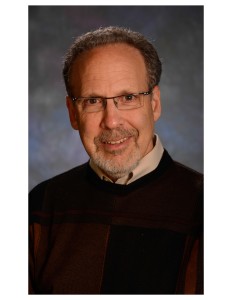

On behalf of the Southwest Neighborhood Assembly (SWNA) board, we hope that your New Year has gotten off to a great start!
One of our resolutions for 2016 is to be more “present” in communicating with the Southwest community and this column space will be a consistent vehicle for doing just that. There are many important topics to address, and we will be raising many of them over the coming months.
For this month, I want to reflect on a current news story that caught my attention, and that has implications for our Southwest community. As you may have learned, in Flint, Michigan, members of the community are suing the city (and maybe the state of Michigan) over their mismanagement of the water supply, and the new mayor had to declare a state of emergency. In a nutshell, Flint switched from Detroit’s public water system last year to use of the Flint River as part of a cost-cutting move while under the state’s emergency financial management. This is a community of 33 square miles that apparently doesn’t even have a supermarket within its boundaries, a tragic end product of declining U.S. industrial might. Thanks to medical personnel in the city, high levels of lead were detected in local children, and they have been traced back to the river water, which has unusually high levels of pollution that is not handled by the existing purification efforts. Officials maintained the water met safety standards, but children were later found to have elevated lead levels in their blood and it was determined that corrosive river water was drawing lead from aging underground pipes. The result of this discovery, in a community already reeling, has been much finger-pointing, calls for officials’ resignations, health damages, and a community with limited resources to address these dangers.
Southwest, and DC more generally, is not Flint, but several things struck me about this news story. This kind of situation—public officials making policy and operational choices that can have major impacts on a community—is hardly unknown in DC. In Flint, it seems that the community did not have a chance to affect a critical decision that had major impact on them, a decision for which the citizens relied on officials to ensure the safety of this interim, cost-saving measure. I don’t know why that was the case but it made me think of all of the policy, legal, and operational decisions made with regard to Southwest by a variety of public and quasi-public bodies and, in some cases, certain private interests, whose decisions can or will have an impact on our community. This is what happens in urban areas, and sometimes those decisions have great outcomes and, sometimes, not so much.
What should be possible is for a community to have a voice in those kinds of decisions at a point in time when they can actually impact the decision-making. Too often a platform is provided too late in the process for it to be meaningful … or decisions are made in less than transparent ways. Too often, the less affluent in a community, those with physical limitations, or underserved minorities, have no effective say. The SWNA board views our role as being, in part, to ensure that our community has a seat at the table when important decisions affecting Southwest are made, by whomever. That means all segments of our community although, realistically, the community will not always speak with one voice, because there are divergent viewpoints and interests, to be sure. But we can make sure those voices are heard in a timely manner, well ahead of actual decision-making and in a way that can force positive action or hamper destructive action.
How can we do this? In the coming months, we will be identifying issues and opportunities that each of you, as members of the community, can potentially get involved in addressing. Through SWNA, you can join any number of task forces, depending on your interests, but I’m going to suggest that you start out in a small way. How about just looking at the person passing you on the sidewalk and saying “Good morning”? I hear all the time that one of the things that is special about Southwest is the neighborhood feel and, frankly, that is going to be challenged by the influx of residents and visitors who will be starting to descend on us as early as this coming summer. Just acknowledging each other in the moment can produce a real positive vibe, which, in turn, can provide a basis on which to build relationships that are productive. In big city life, anonymity can be a plus or a minus but it can certainly lead to a lack of connection—and I believe that we all need to recognize that we are connected to each other in this neighborhood, and that if we want happy endings at the end of this radical transitional period in Southwest, reinforcing those connections will be critical.
Let’s make the decision to not have “things happen” to us the way they have happened in Flint. We can avoid that by working together, staying informed, getting ahead of issues, and caring about one another. This won’t necessarily be easy but it is doable. It is in our communal interest and, I would argue, in each of our personal interests as well.
By: Bruce Levine
SWNA President

